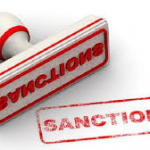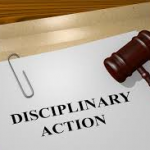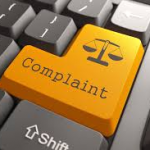 Happy Springtime. In the spirit of the season, we’ve put together a potpourri of recent stories, issues, and developments in the world of Illinois professional licensing. As a Chicago professional license defense law firm, we stay abreast of all matters involving the Illinois Department of Financial and Professional Regulation (IDFPR) and that impact licensed professionals throughout the state.
Happy Springtime. In the spirit of the season, we’ve put together a potpourri of recent stories, issues, and developments in the world of Illinois professional licensing. As a Chicago professional license defense law firm, we stay abreast of all matters involving the Illinois Department of Financial and Professional Regulation (IDFPR) and that impact licensed professionals throughout the state.
Here is the latest news on the Illinois professional licensing front:
Citizenship Not Required For Professional Licenses Under New Bill
A bill recently introduced in the Illinois Senate would allow otherwise qualified applicants for professional licenses to obtain a license regardless of their citizenship or immigration status.
Senate Bill 1166, which passed the full Senate on March 21 and is now pending in the Illinois House of Representatives, provides that, except as otherwise provided by law, no department shall deny an occupational or professional license based solely on the applicant’s citizenship status or immigration status.
The bill’s author, Assistant Majority Leader Iris Martinez (D-Chicago), explained said that she drafted the legislation because, “If anyone in our state wants to contribute by working hard and paying taxes, they should not be denied because of where they were born.”
Extended IDFPR Delays Risks Exodus of Physician Assistants From Illinois
There is always a bit of a wait time between the date IDFPR receives a professional license application and the date it issues one. But every day that passes during that time is a day that the applicant can’t make a living and earn a paycheck working in their chosen profession.
For physician assistants (PAs), who are in one of the fastest-growing and most in-demand professions in the country, the problem with IDFPR delays is particularly acute. PAs are having to sit on their hands for months before they can begin to do their jobs helping patients.
The current processing time for Illinois Physician Assistant applications is 8 to 10 weeks, according to IDFPR, though some applicants report having to wait well-over three months before receiving their license. By way of contrast, the average wait time in neighboring Wisconsin is all of eight days.
The Illinois Academy of Physician Assistants (IAPA) places the blame on understaffing at IDFPR and its lack of “sufficient funding to tackle the backlog of applications.”
A report earlier this year by NBC 5 Chicago indicated that the difference in wait times is making a difference in where newly-minted PAs are choosing to practice, potentially leaving a shortage of PAs in Illinois at the same time their services are increasingly being utilized by more patients.
Hairstylists Now Need Domestic Violence Training
Hairstylists often become unofficial therapists and sounding boards for their clients. Now, they will officially need training so that they can spot signs of domestic violence or sexual assault and help those clients who are experiencing such trauma.
Under an Illinois law passed in 2016, all 84,000 beauty professionals in the state have until this September to complete the in-person or online classes. Cosmetologists, cosmetology teachers, estheticians, esthetic teachers, hair braiders, hair braiding teachers, nail technicians, and nail technology teachers will not be able to renew their professional licenses unless they do so.
The classes are one-hour and only one session is required, There are 20 approved sponsors across the state providing the needed training, including several locations in Chicago. IDFPR has a full list of all available class locations.
Louis Fine: Chicago Professional License Defense Attorney
If you have questions or concerns about your professional license, or you learn that you are the subject of an IDFPR investigation or complain, please contact me immediately. As a former Chief Prosecuting Attorney and administrative law judge for IDFPR, I have seen the serious consequences that an adverse enforcement decision can have on professionals who suddenly find their future in disarray. I can work with you to develop the strategy best suited to achieving the goal of an efficient, cost-effective outcome that avoids any adverse action. Together, we will get you back to your clients and your career.
Please give me a call at (312) 236-2433 or fill out my online form to arrange for your free initial consultation. I look forward to meeting with you.












